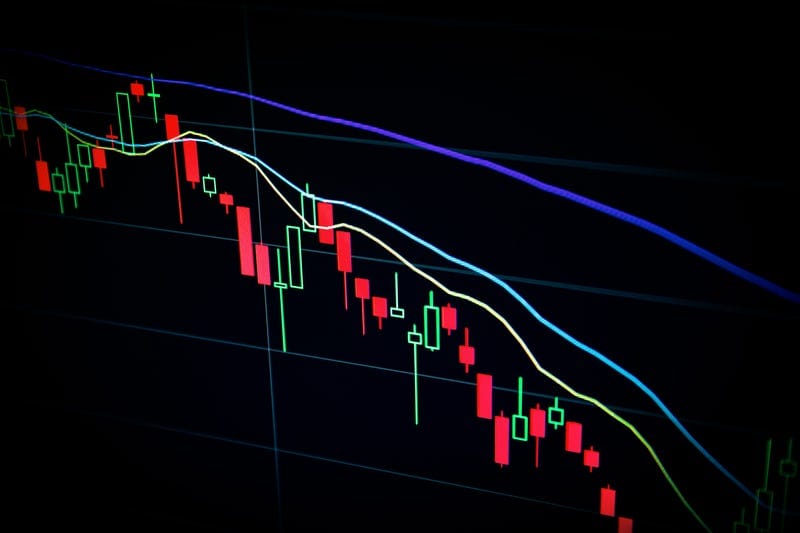Teens get a bad rap.
They are known to be lazy bums who scroll through social media all day infesting their lives with toxicity, comparison and trash while their elders look down on them with dread and confusion questioning why they aren’t investing in their future.
Although a majority of teens do engage in wasting time through doom scrolling, unhealthy practices and cannot gauge the concept and advantage of time, some have and are paying a price for it.
As a teen myself, I can affirmably say this was a great year for our bank accounts, portfolios and bet on the future. Stuck at home it was tough to find work in between school while dealing with the worries of contracting the virus. Teens stayed home, applied for stimulus because we could, resorted to TikToking, Discord tracking and some including my self, Reddit snooping.
Not until the end of 2020 was trading the new hot fad for younger generations. Prior to the pandemic, it was still seen as a white-collar dad thing to do for statisticians or hedgies. I was fortunate enough to learn about the markets in high school in economics class. Thankfully we traded paper money or else we would have been doomed and probably sent the school bankrupt if they withdrew funds from the PTA.
That sweet age of innocence when we discover the joys of a new driver’s license, first love and the power of boredom turned into perplexed enthusiasm for exchange-traded fund investing, crypto, SPACs and retail trading.
As with everything, too much of a good thing is bad. One might suppose there’s absolutely no harm in learning how to trade to buy and sell stocks. Not only that, during this time we learned about the power of fundamental and technical analysis, how a frothy market works, the Fed’s decisions to pump stimulus into the economy through quantitative easing and loosen credit by increasing borrowing through low-interest rates and how we can let our money work for us not against us in investing in companies that make our lives better.
No doubt the pandemic was an incredible learning lesson, especially for students and teens who were bored with too much time on their hands stuck at home. As opposed to being bored without a pandemic, they would’ve resorted to presumably more dangerous things other than opening up their first brokerage account.
Retail mania has certainly reached my generation. In May, Fidelity Investments said it would give 13- to 17-year-olds not just debit cards and savings accounts, but also access to an investment service that would allow them to trade U.S.-listed stocks, Fidelity mutual funds and most ETFs.
Similar to a custodial account with their parent’s supervision, teens are now able to get in on all the hype, although not a recommended way to start investing in order to earn consistent returns, it is a smart advertising gimmick sponsored by retail trading platforms such as Robinhood and WeBull to get more traders on board.
Since these platforms profit off of payment for order flow a.k.a the number of daily inflows and outflows (trades) on the platform, the power of establishing free commission trading, a simple and accessible sleek interface, stock recommendations, a mobile based app and fractional shares sold youngsters.
Teens compared these platforms to video games at the same time fooling themselves into believing they were earning money every time they logged on.

How Educational?
Although you could argue any type of activity in the market and taking the initiative to plan for the future are wiser moves for one’s future than learning how to dissect a frog in Zoom University, they do come with major drawbacks.
For one, investing is risky and what’s certain is uncertainty. Since the market trades in the future, 3–7 months down the road, markets are unpredictable although they historically always go up over time.
With no financial backing or education, those who aren’t financially literate can get into deep waters quick and platforms make it easier than ever to do so boosting record profits for themselves.
Robinhood offers options to buy on margin (borrowing money to take on positions), get a stake in arguably the most volatile speculative investment or shall we say, imaginary digital currency of all time, BitCoin and buy fractional shares which in turn all allow investors to dabble with their money with no real fundamental underpinning behind it.
But cheap online trading isn’t going anywhere. At Fidelity, investors 35 years or younger opened 1.6 million retail accounts in the first quarter, more than triple the number from a year earlier.

Future Bet?
Planning for our financial future and preparing children for it seems easier than ever. No more lemonade stands or paper check books, trading is the new way to go.
Expecting children to save up every penny in their savings account or worse, piggy bank earning little to no interest on the average return of 0.02% each year with inflation on top is unsustainable and not reasonable. Locking in $1k in birthday money for a year will earn less than $1. While the market, an inflationary hedge and compounding machine is the best way to go, even if it seems too early since time is your best advantage.
Too Much
You wouldn’t think that having too much money is a problem until it is.
The most common reason is because we believe that more money = more happiness and less problems. Yet it’s usually the opposite especially since money can’t solve most problems plus our happiness plateaus after we earn the median household income of $75k.
Surprisingly, Millennials are having another problem these days involving just that. They are suddenly wealthy from speculative trades they did not expect to generate in a year with unprecedented amount of hardship, turmoil, unpredictability and confusion.
Those who benefited the most from the market surge this past year typically fell into 1 of 3 categories according to Sahil Vakil, founder of personal-finance tech company MYRA:
1) They were given company shares (stock options) as compensation for joining a newly minted FinTech or C-suite company
2) They caught last year’s retail investing frenzy and rode the market to new highs
3) They invested early on in cryptocurrency to great success
With the Nasdaq Composite rising nearly 47% in the past 12 months, despite a pullback and correction, a crypto investor who stashed $5k in Bitcoin at the end of 2019 would have netted more than $25k in gains after Bitcoin’s 2021–21 surge.
This is astronomical considering how little Millennials studied Bitcoin or the markets in the past. With retail traders between the ages of 15–30 having little to no financial literacy, college degree or possibly even a job, they dealt with what they had, boredom and stimulus and put it into the market.
They fended away from depending on W2 income and an employer and instead fled to the markets where they could see insurmountable gains, take part in a revolution and not be a slave to their time working at McDonalds.
Yet, these days as reopening goes full-force, many have a reason to do both.

Cherry On Top
Due to the unpredicted labor shortages occurring throughout the U.S., those who were laid off at the start of the pandemic either resorted to working online as a digital nomad/entrepreneur/self-employed, relied on their stimulus to keep themselves afloat which in turn led to market dependency as a day trader or simply found another job since they didn’t know the timeline in when their prior employer would start hiring again.
Teens are the luckiest workers in America! Not only they earned big from the markets, employers are now boosting paychecks out of desperation.
They are picking up jobs with an added bonus of higher wages as not enough workers and supply can keep up with demand in places such as amusement parks to beaches, ice cream parlors and restaurants which have surged in popularity as vaccinations rise.
The share of 16-to 19-year olds who are working hasn’t been this high since 2099, before the unfolding global financial crisis that sent employment plummeting.
American teens are looking for work and this is their best summer yet. With the stock market at all time-highs and businesses requiring help, you won’t see any kids fooling around.
While employment in itself can offer learning opportunities, educators and parents are concerned that higher pay is too enticing and not always a great opportunity.
Face it, how much can you really learn from flipping paties or watching kids not drown in a pool?
Yes social, people and soft skills are developed throughout these interactions which are vital and cannot be taught through a textbook, yet the focus on school and investing in themselves through internships, college prep and extracurriculars may be waning.
Health concerns and child care challenges seem to keep some older workers from quickly taking jobs. Compounding those challenges with far fewer immigrants due to travel restrictions during the pandemic have left agricultural and seasonal positions in factories vacant.
Although teens have been gaining employment faster than any other age group, interest is still abound in markets especially since returns are inevitable somewhere and the process of trading is more fun for them which of course isn’t always great.
Retail traders take up roughy 15% of the overall market and only growing.
It’s exciting to see a new wave of investors taking charge of their financial future.
After all, I would rather have more time than money. No amount of money can substitute it.
Keep busy this summer.

